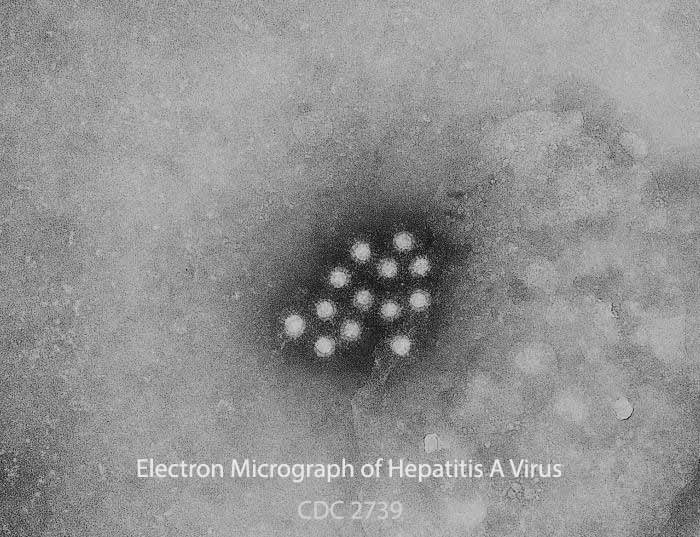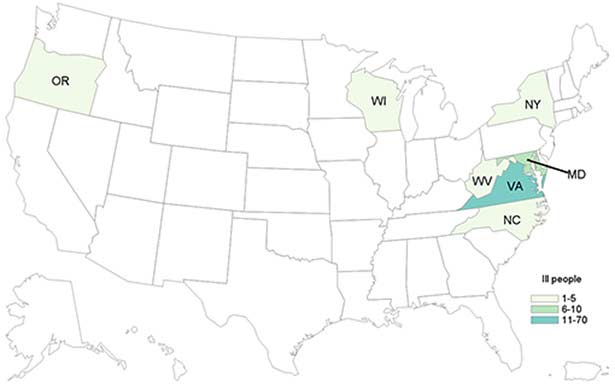You may have the right to sue Tropical Smoothie Café for food poisoning from hepatitis A if your illness can be linked to the restaurant. For answers to some of your questions, read “Can I Sue a Restaurant for Food Poisoning?” and “Restaurant Lawsuit FAQ.”
5 Questions About Your Hepatitis A Case
- Were you diagnosed with hepatitis A?
- Did you consume a Tropical Smoothie Café smoothie containing strawberries within 50 days of getting sick?
- What were your symptoms?
- Were you hospitalized?
- Do you have continuing medical problems from this illness?
You should discuss your answers to these questions with a hepatitis A lawyer, one with experience winning cases like yours. Attorneys Fred Pritzker and Eric Hageman are our lead lawyers for these cases. They can be contacted using our online free consultation form.
89 Sick in Outbreak Associated with Tropical Smoothie Café
As of September 14, 2016, there are 113 people with hepatitis A (a dangerous viral infection), according to the CDC:
Maryland (10), New York (1), North Carolina (1), Oregon (1), Virginia (94), West Virginia (5), and Wisconsin (1). The ill person in Oregon traveled to Virginia and while there, had purchased smoothies containing frozen strawberries from a Tropical Smoothie Café location.
Because symptoms of a hepatitis A virus infection can take up to 50 days to appear, these numbers may grow.
Almost half of the people sickened have been hospitalized, according to the FDA. Hepatitis A damages the liver and causes the following symptoms that can last from 2 to 6 months (CDC):
- Fever
- Fatigue
- Loss of appetite
- Nausea
- Vomiting
- Abdominal pain
- Dark urine
- Clay-colored bowel movements
- Joint pain
- Jaundice (a yellowing of the skin or eyes)
The hepatitis A virus can cause severe illness and is sometimes fatal. Damage to the liver can impair functioning and increase the risk of other infections.

Outbreak Investigation
“Epidemiologic and traceback evidence indicate frozen strawberries imported from Egypt are the likely source of this outbreak,” according to the CDC.
Interviews with people sickened in the outbreak found that “nearly all ill people reported drinking a smoothie from Tropical Smoothie Café in the month before illness started” (CDC). Of the 89 people, 54 were interviewed regarding the type of smoothie consumed at the restaurant. All 54 reported eating a smoothie containing strawberries purchased at a Tropical Smoothie Cafe in either Virginia (most cases), Maryland, North Carolina or West Virginia.
According to the CDC, “Information available at this time does not indicate an ongoing risk of acquiring hepatitis A virus infection at Tropical Smoothie Café’s, as the contaminated food product has been removed as of August 8.”
The FDA and CDC are continuing the investigation into the source and distribution of the implicated strawberries. The FDA “has been in touch with the Egyptian International Health Regulations National Focal Point to discuss the investigation.” The agency has stated that it is also “working to identify other parts of the relevant supply chain and will take appropriate action as necessary.”
Should I Join a Class Action Lawsuit?
Class action lawsuits are generally used when the people suing have very, very similar cases, including similar injuries. For this reason, lawyers with experience in this area generally do not file class actions for outbreak victims.
Our lawyers have won multimillion-dollar settlements for our clients who we represented individually, not as part of a class. We want to do what is best for our clients, taking all the steps necessary to get them full compensation.
If you were diagnosed with hepatitis A, you will want to discuss this in a free consultation with an attorney who has won cases like yours.
If you have read about a class-action lawsuit filed against Tropical Smoothie Cafe, this is probably one filed on behalf of people “exposed” to hepatitis A, and not people actually sickened. This is simply a way for a law firm to get money from a company for people who were not sickened.
